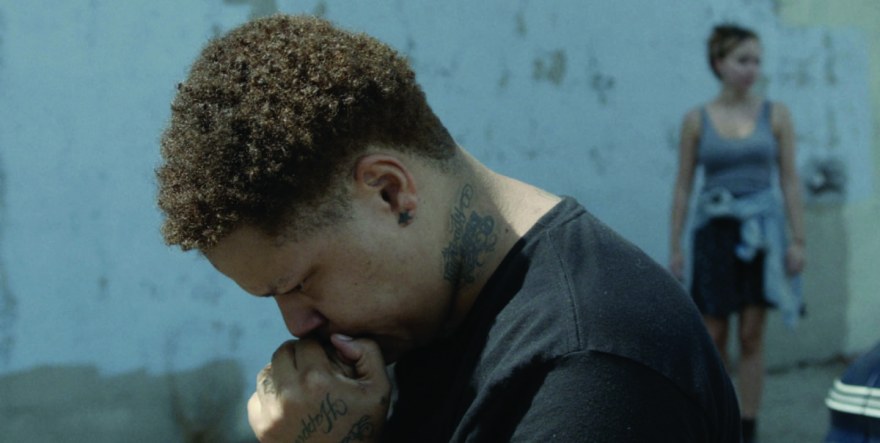Breakfast with BobbyAnna
Interview with Jackson Kroopf, director of BobbyAnna
What motivated you to tell Bobby and Anna’s story?
I worked at a youth center in East Oakland for three years called Youth UpRising. While working there, I was working with a young woman who had been kicked out of a homeless shelter the night before because she was pregnant, which was against the shelter’s policy. I tried to find some emergency resources but couldn’t for that night. My impulse was to invite her to stay with me, but again, that was against the policy of the organization for which I worked. I wanted to make a film about the ways in which well-intentioned people fail the people they’re trying to support. The characters of Bobby and Anna emerged from my time at Youth UpRising, working with talented young people struggling to stay above water, and educated, well-intentioned, middle-class social/cultural workers navigating the complicated personal boundaries we construct in the name of work/life balance.
Can you tell us about the casting process and the songs featured in the film?
For Bobby, we did street casting. I learned a bit about it by working on Andrea Arnold’s last film American Honey, and speaking with one of her casting people. My producer, Lorraine DeGraffenreidt, and I went to lady’s nights at places like The Abbey, and the now closed Jewel’s Catch One (a crucial institution whose closing is an actual L.A. tragedy/travesty). At the final night Jewel’s was open, we met someone named Destiny, who we thought fit the part, but they didn’t agree. However, Destiny pointed us to Legacy Bailey. From the first moments of her audition, it was clear Legacy would play Bobby. Immediately upon being cast, Legacy and I were workshopping new ideas for scenes. She auditioned with the film’s second song, “Destination”, in addition to adding three other original songs that make up most of the film’s music. Of course Legacy differs in a multitude of ways from Bobby, but if you pay attention to the words of her songs in the film, each of which were written before we met, it’s clear she was the person to play this role.
The phone conversation with her mother at the end is very moving. What’s the significance of it?
That’s up to the viewer. I think most people have had some version of that conversation with a loved one. In terms of the performance, while we were rehearsing for the film, Legacy and I discovered we both knew someone named Marcus, who was dear to us both, who had been killed the year before. I had an R.I.P. Marcus pin with me in my pocket that I handed to Legacy at the beginning of the shoot as a sort of tribute meets talisman. The phone scene was the last thing we shot after a 15-hour overnight. We were exhausted. By the third take, Legacy and I were both in tears. That’s the take in the final film. The project was a true labor of love for everyone involved, and the scene gets to the heart of the film in terms of both how fucked up the world can be, but also the vital role the people closest to us can play in helping us find our way.
Can you tell us about your foray into filmmaking?
I’ve been making some form of narrative films since I was a teenager, but I really committed to filmmaking in the past five years after spending some time working for community-based youth programs in New York and Oakland. I tend to gravitate to stories about the people that teach me the most; often these are folks who are rarely seen on screen. I work closely with my collaborators to make films that reflect their strength, creativity, and struggle in the face of systematic neglect. I split my time between narrative and documentary work, but no matter the project, the end goal is the same; to tell intimate stories that are emotionally engaging and challenge a viewer to consider a perspective beyond their own. Right now, I’m finishing up my MA in Social Documentation at UC Santa Cruz, a program focused on the intersection of documentary production and social change, which has taught me a lot about both low-budget, one-person band filmmaking and ethical approaches to representation.
Any cinematic coups de cœur in the past year you’d like to tell us about?
If I understand you correctly, what’s inspired me in the last year? There’s really inspiring work happening everywhere. I got to see Chevalier and meet Athina Tsangari at the screening; she’s a force and probably better at Q&A’s than any artist I’ve seen in any medium. In the U.S., Khalil Joseph is constantly setting the bar higher with everything he touches, and Barry Jenkins’ Moonlight is, for me, the best film of the last several years: devastating, vital work. I also continue to be moved by everything Apichatapong Weerasethakul makes after seeing Cemetery of Splendour; yet another masterpiece. Oh, and finally watched Li’l Quinquin; great to see a filmmaker as good as Dumont working at that length.
If you’ve already been to Clermont-Ferrand, could you share with us an anecdote or story from the festival? If not, what are your expectations for this year?
This is my first major European festival. I couldn’t be more excited to meet other people passionate about cinema, and see more of what people are doing with the short form in other parts of the world.
Are any other releases scheduled?
We’re going to be showing at the Frameline Film Festival in San Francisco in June. That’s all that’s slated for now.
Are you taking part in other events during the Clermont-Ferrand Short Film Festival? (Espressos, Conferences, other?)
Yes. Anything I’m allowed to attend, I’ll be there.
BobbyAnna is being shown in International Competition I8.








